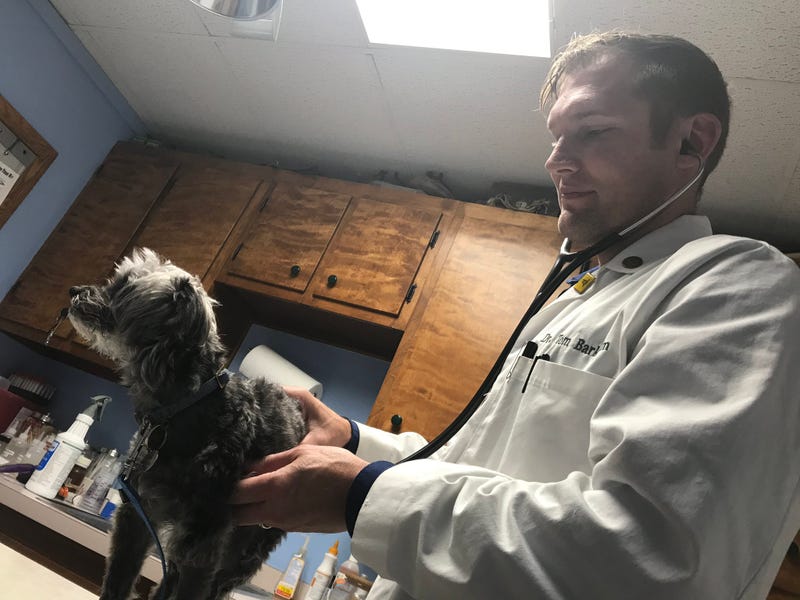
(WWJ) – Dozens of dogs in Northern Michigan have been getting sick and dying from a parvovirus-like illness, and multiple state agencies are investigating what’s behind it.
On Friday officials with the Veterinary Diagnostic Laboratory at Michigan State University announced they were investigating the illness, which had claimed the lives of at least 30 dogs.
Officials with the Otsego County Animal Shelter first brought the illness to light in early August, saying dogs were showing signs of parvo – vomiting, diarrhea and bloody stool – but were testing negative for the virus when taken to their vets.
In a release on Monday, the MSU VDL and Michigan Department of Agriculture Rural Development said their diagnostic investigation is still ongoing, but some of the first samples submitted for testing came back positive for parvovirus.
Additional diagnostic testing is still ongoing to determine what it might be.
“Veterinarians are encouraged to pursue additional diagnostics in cases where screening tests for parvovirus are negative but clinical presentation is consistent with parvovirus infection,” the agencies said Monday. :Please call the Laboratory with any questions about sample collection, submission, or diagnostic options and contact MDARD if unusual or reportable illnesses are seen.”
WWJ’s Ryan Marshall spoke with Dr. Thomas Barkham, a veterinarian at Paint Creek Animal Clinic in Rochester Hills, who said his clinic hasn’t seen any cases this year, but he does know of other clinics that have seen it.
“Some of the cases we get, they buy a puppy and the breeder hasn’t actually vaccinated the pet,” Barkham said.
That’s why it’s important to do your due diligence and make sure pets are vaccinated, Barkham said.
He referred to dog parks as "parvo parks" and said if a dog hasn't been properly vaccinated, getting it "can be a death sentence."
Symptoms of parvovirus include vomiting, diarrhea, lethargy and fever. It is highly transmittable through dog-to-dog contact, direct or indirect contact with their feces, or other things that may have come into contact with the virus.
Vaccines can prevent infection from the virus, and officials are saying it’s important for dog owners to keep up on routine vaccinations and ensure animals are fully vaccinated before interacting with others.
If dogs or puppies show signs of illness, keep them at home and away from other dogs and contact your veterinarian, the MSU VDL said Monday.
“Be sure to clean up after your pet when walking in public and don't allow pets to come into contact with other animals' waste.”


